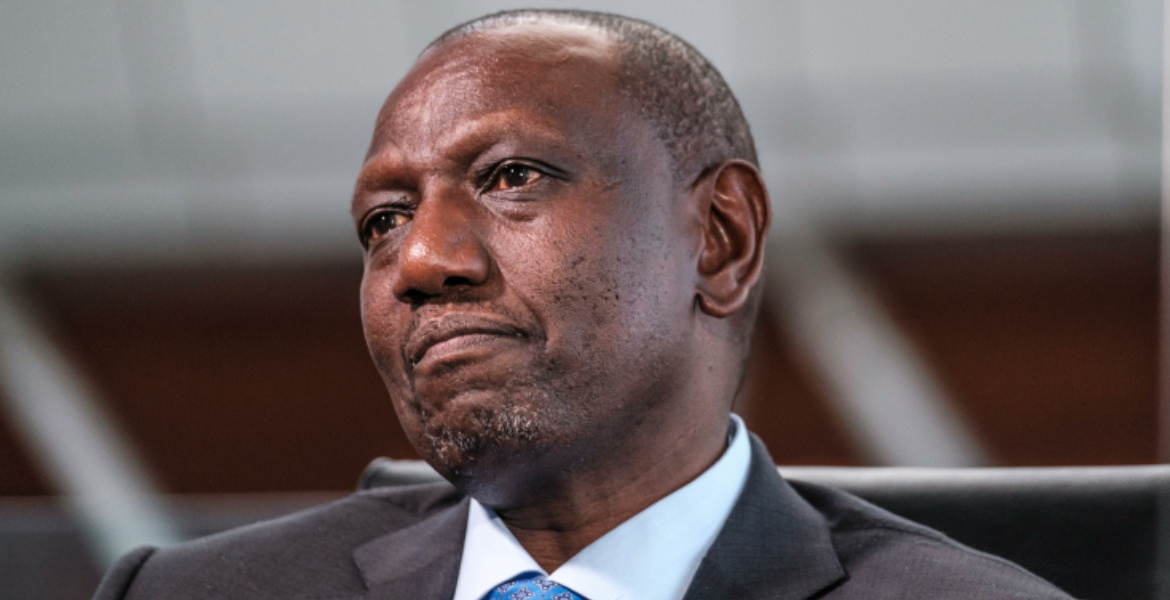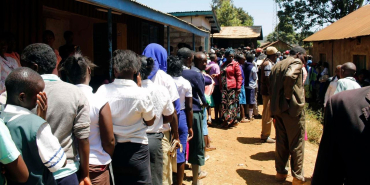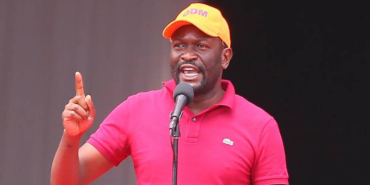State Agencies Target Ruto Critics with Raids and Arrests

A series of recent arrests and raids targeting opposition figures and former government officials in Kenya have ignited concerns over the potential misuse of state agencies for political purposes.
These actions come as political tensions escalate ahead of the 2027 elections, heightening fears of executive overreach and erosion of democratic freedoms.
The most immediate flashpoint was the early Monday morning raid on the Kitale residence of TransNzoia Governor George Natembeya by plainclothes officers from the Ethics and Anti-Corruption Commission (EACC), accompanied by riot police. The operation triggered chaotic scenes as agitated youth attempted to obstruct law enforcement, resulting in vandalism of EACC vehicles and a struggle by anti-riot officers to contain the unrest.
The raid on Natembeya's home followed an overnight security operation around the residences of former Deputy President Rigathi Gachagua and the arrest of Mumias East MP Peter Salasya, adding to the perception that state agencies are being employed to settle political scores. KANU Chairman Gideon Moi has also faced scrutiny, with police and Kenya Railways officers recently raiding Kencont Container Freight Station in Mombasa, a company associated with him, over allegations of illegal land occupation.
Salasya's arrest occurred over the weekend, culminating in a formal arraignment at Milimani Law Courts, where he pleaded not guilty to inciting ethnic hatred through social media posts. He was subsequently released on a bond of Sh500,000 or a cash bail of Sh200,000. His legal team has challenged the circumstances of his arrest, alleging violations of due process, including claims that police officers fired at his vehicle and transported him to an undisclosed location before taking him to Central Police Station in Nairobi.
These incidents have been viewed against a backdrop of public threats issued by senior government officials. Days before the raid on Natembeya’s home, Interior Cabinet Secretary Kipchumba Murkomen, speaking in Kitale, warned the governor against making statements deemed disrespectful to the presidency. Murkomen also alleged that certain leaders surround themselves with criminal elements at public gatherings, a practice he described as unacceptable.
In Iten, Murkomen and Deputy President Kithure Kindiki issued explicit threats against Gachagua, warning of impending legal consequences for his political rhetoric. Gachagua's political allies have characterised the siege on his Nairobi and Nyeri homes on Sunday night as an orchestrated effort to intimidate and silence him, rather than a legitimate security operation. The former deputy president, now a vocal critic of President Ruto’s leadership, condemned the events as “state-sponsored terror,” questioning why authorities had not issued formal summons before resorting to a siege.
Gachagua's remarks reflect the growing political divide, with his faction advocating for a "one-term movement" aimed at unseating Ruto in the next general election. His warnings about potential election-related unrest in 2027, exceeding the turmoil witnessed in 2007/2008 if the Independent Electoral and Boundaries Commission (IEBC) mismanages the upcoming polls, have further fueled speculation about the political motivations behind the police operations against him. Political leaders allied with the opposition have strongly condemned the government’s actions.
Democratic Action Party of Kenya (DAP-K) leader Eugene Wamalwa has decried the government’s actions as blatant intimidation, while Wiper Party leader Kalonzo Musyoka alleges that the EACC was being exploited as a political weapon.
Despite the outcry, government officials, including spokesperson Isaac Mwaura, have denied any political motive behind the arrests, maintaining that the legal actions were based purely on alleged criminal activities. However, the series of arrests and raids has reignited concerns about the vulnerability of Kenya’s political landscape to executive overreach.
The use of state agencies against opposition figures raises questions about the integrity of legal institutions and their ability to operate without undue influence.
Observers note that the developments reflect a recurring pattern in Kenyan politics, where those in power leverage investigative bodies against political rivals. Critics argue that such tactics undermine democratic principles, instilling fear among opposition leaders who dare to challenge the government.
The current situation bears similarities to past crackdowns under the administration of former President Uhuru Kenyatta, where allies of then-Deputy President Ruto frequently found themselves in the crosshairs of law enforcement.








Add new comment